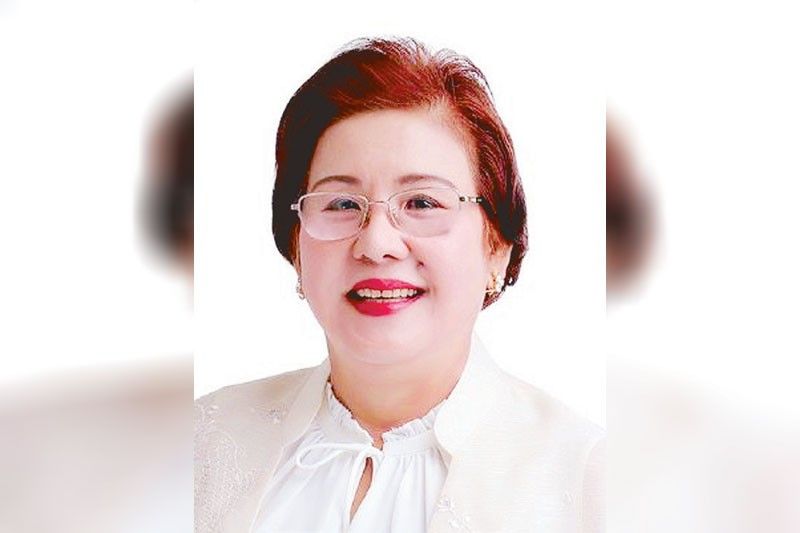PCCI: Economy to grow at faster pace this year

MANILA, Philippines — The country’s biggest business group has expressed optimism about the performance of the Philippine economy, projecting it to grow faster, or by at least six percent this year.
In an interview with ANC, newly elected Philippine Chamber of Commerce and Industry (PCCI) president Enunina Mangio said “the growth will be driven by resilience and domestic consumption, increase in government spending on infrastructure projects, and a gradual recovery in some sectors.”
Mangio said she is upbeat on the business environment this year, acknowledging both the efforts of the government and the private sector to address the issue of the ease of doing business.
“We are looking forward to a better year,” she said.
To make the country more attractive to investors, Mangio stressed the need for the country to strengthen its foreign relations as well as continue upskilling its workers.
She said reskilling and upskilling the laborers is important so that the country’s foreign partners will be able to appreciate the potential of Philippine workers.
Mangio officially started her term as PCCI president this month. She is the third woman president of the PCCI since its inception in 1978.
She owns several businesses including the SamgyeopMasarap chain of restaurants.
Prior to her post, she served as the vice president for regional affairs of the PCCI.
“I am honored by the trust and confidence that my colleagues in PCCI have entrusted in me. I will do my best to serve the chamber movement and represent the organization in the local and global arena,” said Mangio, who is also an honorary consul of the Republic of Liberia in West Africa.
Mangio earlier vowed to continue the work that her predecessor started, and committed to proactively work with the national government in attracting investors to the Philippines.
She also aims to push for programs that will create more businesses and generate jobs across the country.
Mangio has been engaged in several businesses including Servcare International Corp., an international holding company with subsidiaries in the US, Asia and Dubai, where she sits as president.
Meanwhile, global banking giant Citi also sees the Philippine economy bouncing back with a six percent gross domestic product (GDP) growth this year after expanding by only 5.5 percent in 2023.
In a report, Citi economist for the Philippines Nalin Chutchotitham said domestic demand expansion would stay robust and remain a key driver of Philippine economic growth.
“We expect GDP growth to improve to six percent in 2024 from 5.5 percent in 2023,” Chutchotitham said.
She said the Philippines’ low unemployment and minimum wage hikes would support labor income, adding that the continued expansion of income remittances and easing inflation would also support household consumption.
Chutchotitham said public and private investments, including foreign direct investments would pick up more strongly this year.
“The year 2023 was mired with rate hikes, volatile commodity prices and foreign exchange movements. With a more favorable domestic economic environment this year, we expect stronger investment expansion, supported by significant legislative reforms over the past few years,” she said.
Citi said the Philippines’ fiscal deficit is expected to remain wide, but on a steady decline to three percent by 2028 as steady growth in revenues, supported by growing economy, would help partly offset substantial expansion of planned expenditures.
It added several tax reforms pending, some of which have been passed by the House of Representatives, would increase revenue collection significantly in the coming years.
Chutchotitham said upside inflation risks remain, but expectations are better anchored.
“While base effects will help to bring inflation down to 3.4 percent in 2024, we continue to monitor risks from electricity and transport service costs and El Niño,” she said.
Chutchotitham said the Philippine central bank may start cutting interest rates in the third quarter of the year, ending its tightening cycle that started in May 2022.
“We expect the BSP to maintain its policy rate through the first half of 2024, to help anchor inflation at around the mid-point of the policy target. We expect gradual rate cuts from the third quarter onwards as inflation shows a steady declining trend,” she said.
She explained that the BSP is expected to maintain at least 50 basis points from the current 100-basis-point interest rate spread with the US Federal Reserve to help ensure the stability of the peso. — Lawrence Agcaoili
- Latest
- Trending




























